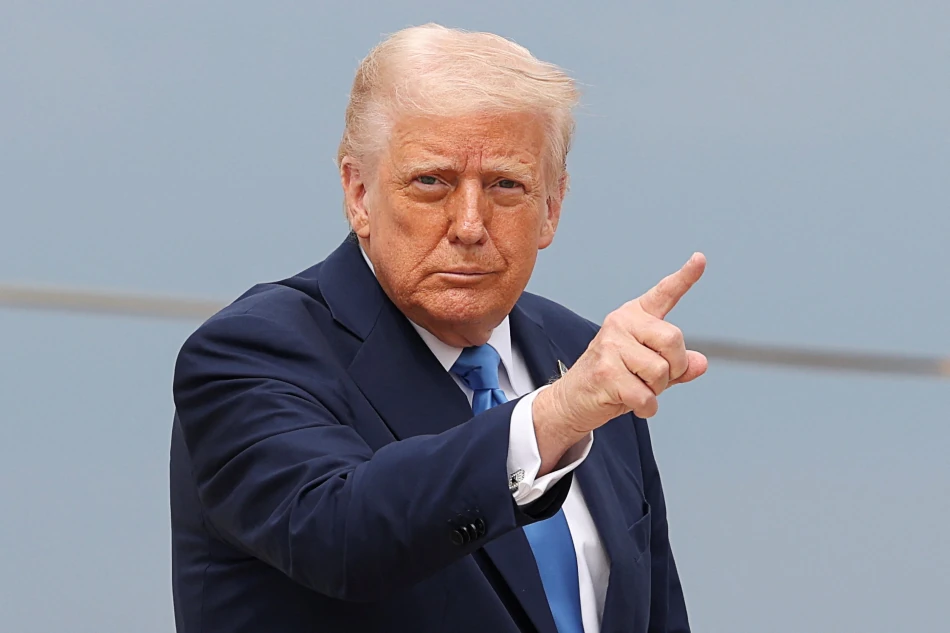
Trump Issues 'Final Warning' to Hamas to Accept Prisoner Swap Deal
Trump Issues "Final Warning" to Hamas as Hostage Deal Negotiations Intensify
President Donald Trump escalated diplomatic pressure on Hamas Sunday, delivering what he termed his "final warning" to the Palestinian militant group to accept terms for releasing hostages held in Gaza. The ultimatum suggests negotiations may be reaching a critical juncture, with Trump claiming Israeli acceptance of his proposed conditions while demanding Hamas follow suit.
The Presidential Ultimatum
In a post on his Truth Social platform, Trump declared that "the Israelis have accepted my terms" and insisted it was now time for Hamas to do the same. The president's language was notably direct: "I have warned Hamas of the consequences of not accepting... This is my final warning, and there will be no other warning."
The statement marks a significant escalation in Trump's involvement in Middle East negotiations, positioning himself as a central broker in what has become one of the most complex diplomatic challenges of recent years.
Strategic Implications of the Approach
Breaking with Traditional Diplomacy
Trump's public ultimatum represents a departure from conventional diplomatic practice, where negotiations typically occur behind closed doors with measured public statements. This direct approach mirrors his previous Middle East strategy, including the Abraham Accords, where bold public positions sometimes yielded unexpected results.
However, the tactic also carries significant risks. Public ultimatums can box negotiating parties into corners, making it harder for them to compromise without appearing to capitulate under pressure.
Regional Power Dynamics
The timing of Trump's warning coincides with shifting regional dynamics in the Middle East. Unlike previous hostage negotiations that relied heavily on traditional mediators like Egypt and Qatar, Trump appears to be positioning the United States as the primary dealmaker.
This approach could either accelerate resolution by centralizing decision-making or complicate matters by sidelining established regional intermediaries who have maintained crucial communication channels with Hamas.
Market and Economic Considerations
Financial markets have historically responded to Middle East tensions with volatility, particularly in energy sectors and regional equity markets. A successful hostage deal could provide stability to regional markets and potentially unlock economic opportunities that have been frozen due to ongoing conflicts.
For investors, Trump's ultimatum creates a binary outcome scenario: either rapid resolution that could boost regional stability, or escalation that might trigger broader market uncertainty. Defense contractors and regional reconstruction companies are likely monitoring developments closely.
Historical Context and Precedent
Trump's direct approach echoes his previous Middle East strategy, which combined public pressure with behind-the-scenes negotiations. The Abraham Accords demonstrated that unconventional diplomatic methods could sometimes succeed where traditional approaches had stalled.
However, hostage negotiations present different challenges than normalization agreements. The human stakes are immediate, and the parties involved operate under different constraints than sovereign governments seeking economic partnerships.
What This Means Moving Forward
Trump's "final warning" creates a compressed timeline that could force rapid decision-making from all parties. If successful, it could establish a template for future crisis resolution under his administration. If it fails, it may demonstrate the limits of ultimatum-based diplomacy in complex humanitarian crises.
The international community will be watching closely to see whether Trump's direct approach can succeed where months of traditional diplomacy have struggled to achieve breakthrough. The outcome could significantly influence his administration's credibility in future international negotiations and reshape expectations for American diplomatic engagement in the region.
Most Viewed News

 Sara Khaled
Sara Khaled






